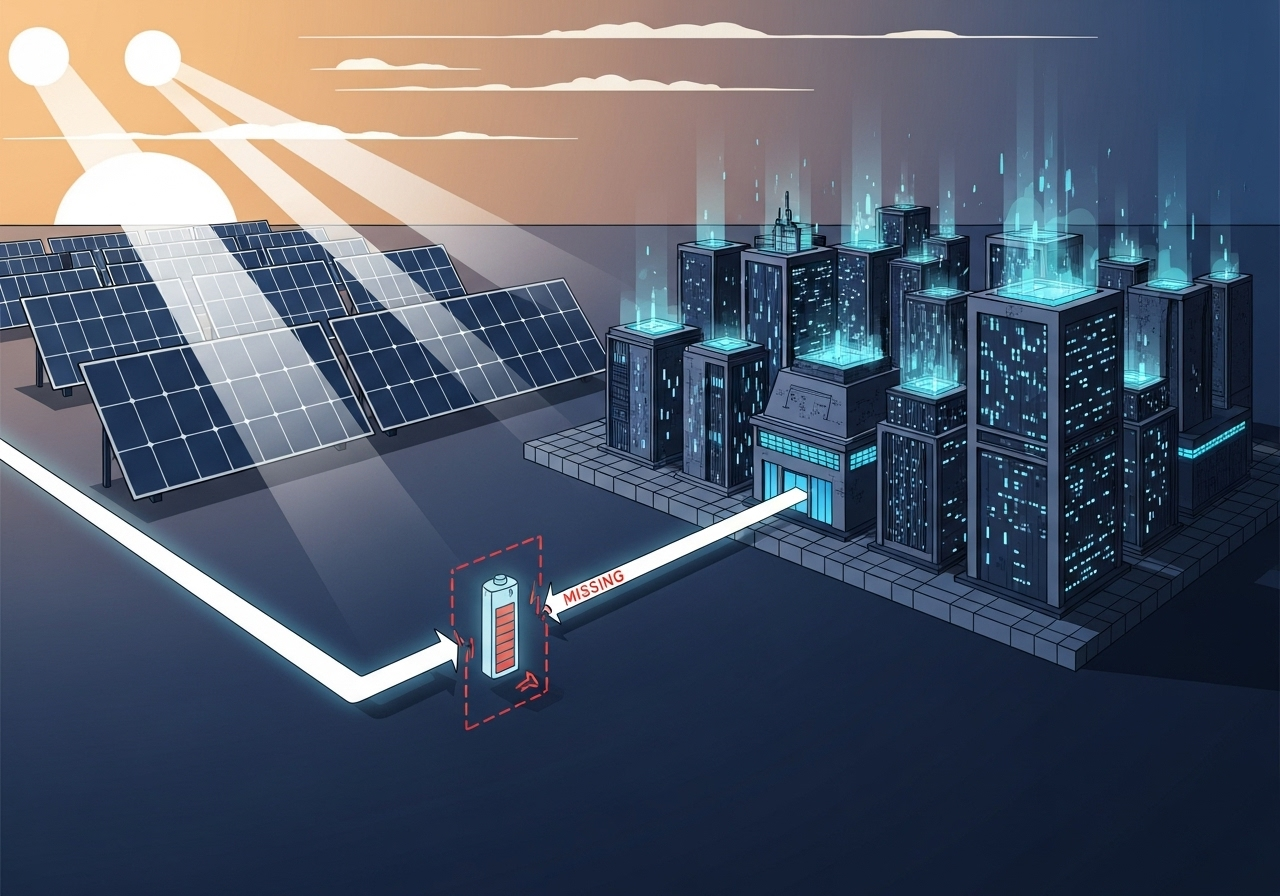Executive Summary & Key Findings
A critical analysis of the 100-megawatt (MW) solar Power Purchase Agreement (PPA) between Microsoft and Shizen Energy reveals a partnership driven by converging needs in Japan’s complex energy market.
For Microsoft, the deal provides a crucial foothold to power its USD 2.9 billion expansion of data center and AI infrastructure.¹ This allows the company to meet its corporate sustainability mandates.² For Shizen Energy, the 20-year agreement with a premier corporate partner delivers the long-term revenue certainty needed to secure financing and validate its business model.³
A central paradox of the agreement is the placement of the new solar projects in the Kyushu and Chugoku regions. These areas boast Japan’s highest solar irradiance but also suffer from the nation’s most severe grid congestion and renewable energy curtailment.⁴
The decision to proceed without co-located battery storage presents a significant, unaddressed risk. Grid-mandated shutdowns during periods of oversupply will lead to direct financial losses and unrealized clean energy generation.⁴ This suggests a calculated trade-off, prioritizing lower upfront capital costs to secure the landmark deal over long-term operational efficiency.
Shizen Energy’s financial capacity to undertake these projects is substantially fortified by a JPY 70 billion (approx. USD 474 million) investment framework with the Canadian pension fund CDPQ.⁵ This capital provides the stability required to navigate market risks. These risks include grid constraints and an evolving policy landscape, such as the shift from a fixed Feed-in Tariff (FIT) to a market-based Feed-in Premium (FIP) system.⁶
This PPA is an important step toward Microsoft’s 2025 goal of matching 100% of its annual electricity use with renewable purchases.² However, it is a more modest step toward its ambitious 2030 “100/100/0” goal of matching consumption with zero-carbon energy on an hourly basis.⁷
Ultimately, the Microsoft-Shizen agreement serves as a powerful market signal. It demonstrates a clear willingness from a major international corporation to engage deeply with Japan’s complex regulatory and grid environment. This commitment exerts tangible pressure on Japanese policymakers and grid operators. They must now accelerate market reforms and invest in the critical infrastructure needed to meet both corporate and national climate targets.²
(more…)
